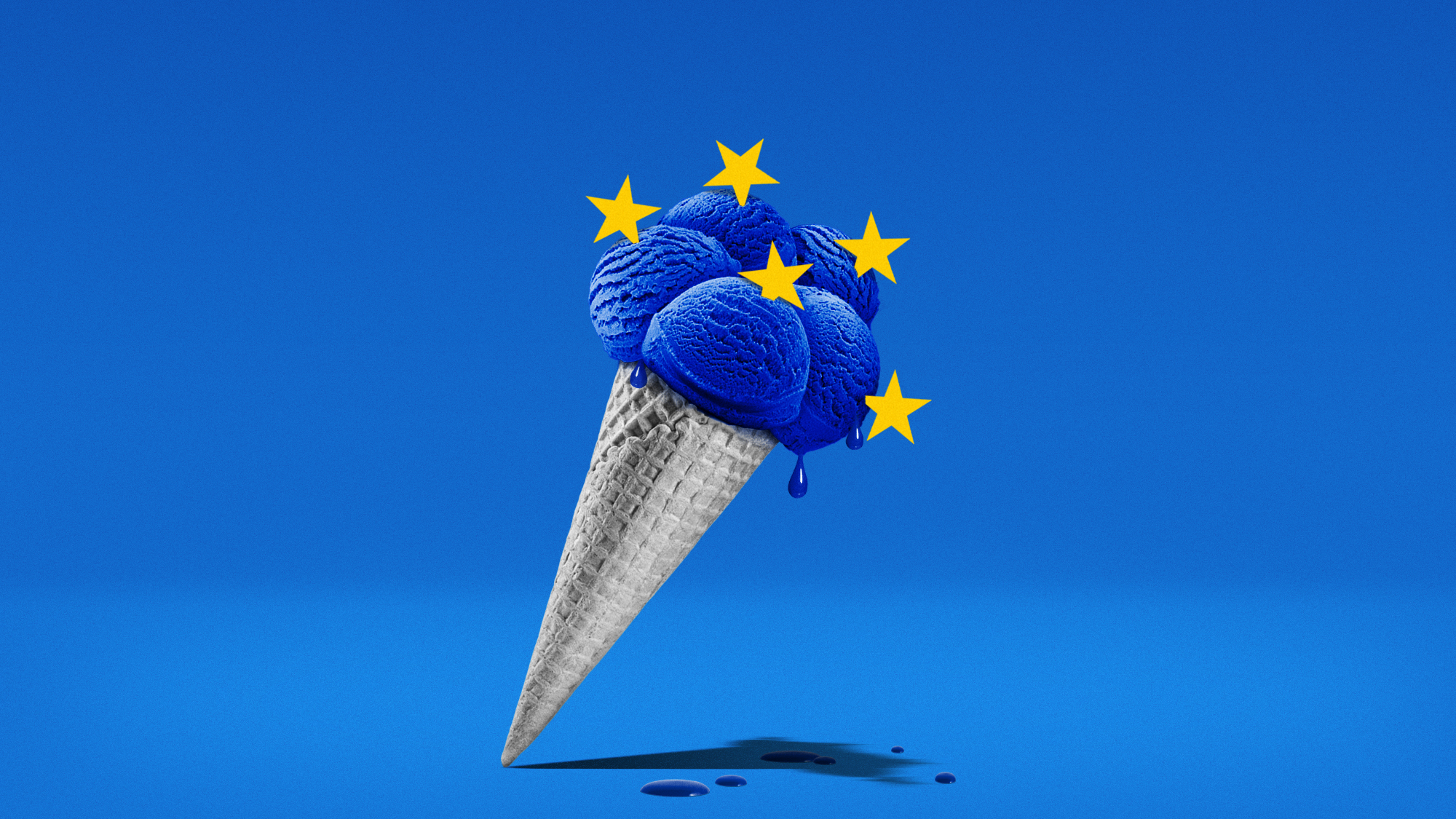Will Ukraine accession radically alter the EU?
Kyiv joining could be biggest change to bloc in decades but a long road to membership remains

A free daily email with the biggest news stories of the day – and the best features from TheWeek.com
You are now subscribed
Your newsletter sign-up was successful
Volodymyr Zelenskyy has hailed a "victory" for Ukraine and Europe after EU leaders agreed to open membership talks with Kyiv.
The accession is "extremely important for the credibility of the European Union", said European Council President Charles Michel, while Ursula von der Leyen, president of the European Commission, described it as a day "that will remain engraved" in the bloc's history.
But the "triumphant mood" was "soured just hours later" after Hungary's prime minister, Viktor Orbán, carried through on his threat to block plans to channel crucial financial aid to Ukraine, said Al Jazeera.
The Week
Escape your echo chamber. Get the facts behind the news, plus analysis from multiple perspectives.

Sign up for The Week's Free Newsletters
From our morning news briefing to a weekly Good News Newsletter, get the best of The Week delivered directly to your inbox.
From our morning news briefing to a weekly Good News Newsletter, get the best of The Week delivered directly to your inbox.
What the papers said
Orbán, a close ally of Vladimir Putin, blocked plans for the EU to send €50 billion (£43 billion) in financial aid to Kyiv, after threatening for some weeks to block the membership deal and the funding.
While the Hungarian leader had agreed not to be in the room for the membership vote – allowing it to pass – EU leaders were "unable to overcome his resistance to the budget proposal", added Al Jazeera.
The EU's "showdown" with Orbán served as a reminder of "the tough road ahead for the EU as it prepares to enlarge", said The Guardian. The bloc is "already grappling" with how to address "rule-of-law problems and foreign policy divergences in countries such as Hungary", and many leaders "recognise that the EU would have to reform internally before expanding", it added.
If a country of Ukraine's "size and strategic significance" were to join, it would "entail the most radical change to the union in decades", said The Times. Ukraine will need to "pursue ambitious reforms" if it is to meet the "exacting standards" that EU integration requires, said the Atlantic Council's New Atlanticist blog, but "reforms need to take place in Brussels as well", particularly on "funding and decision making".
A free daily email with the biggest news stories of the day – and the best features from TheWeek.com
EU policymaking is "already prone to endless negotiations", but the "good news" is that should it "solve these institutional issues", it could "go a long way toward helping the EU meet its decarbonisation goals".
The financial implications are significant. The findings of the German Economic Institute, that admitting Ukraine into the EU could cost up to €190 billion out of the bloc’s €1.1 trillion multi-year budget, means it could prove a "substantial financial hit to EU member states", said UnHerd. Many current "net recipients" of EU funds could potentially turn into "net contributors". These findings could "cast a cloud" over the process, it added.
EU leaders have debated the budget as some member states "resisted paying more into the bloc's coffers", said The Guardian, "another reminder of the challenges if the EU accepts new members who could take up a significant chunk of the budget spend".
What next?
Meanwhile, there is a long road ahead before Ukraine becomes a member because a series of obstacles could easily delay or derail the process. Talks on joining the European Union "can take years", said the BBC, so yesterday's decision will not guarantee Kyiv membership.
Speaking on state radio this morning, Orbán signalled that Hungary might try to halt Ukraine's bid further down the line. "We can stop this process later," he said; if necessary "Hungary will apply the handbrake". Orbán added that "there are about 75 occasions when the Hungarian government can stop this process", such is the time it will take.
Italy and Austria have joined Hungary to demand that Ukraine should not "jump the queue" as Bosnia-Herzegovina is among other western Balkans countries pressing for membership, said The Times.
Before any talks can be launched, EU states must agree on a negotiating framework – giving Orbán "ample opportunity" to stall the process again, said The Telegraph. In all, the "problems" with absorbing Ukraine are an "alibi" for deferring Ukraine's entry to at least 2030, said The Times, and "could yet see Kyiv waiting beyond the next decade".
Chas Newkey-Burden has been part of The Week Digital team for more than a decade and a journalist for 25 years, starting out on the irreverent football weekly 90 Minutes, before moving to lifestyle magazines Loaded and Attitude. He was a columnist for The Big Issue and landed a world exclusive with David Beckham that became the weekly magazine’s bestselling issue. He now writes regularly for The Guardian, The Telegraph, The Independent, Metro, FourFourTwo and the i new site. He is also the author of a number of non-fiction books.